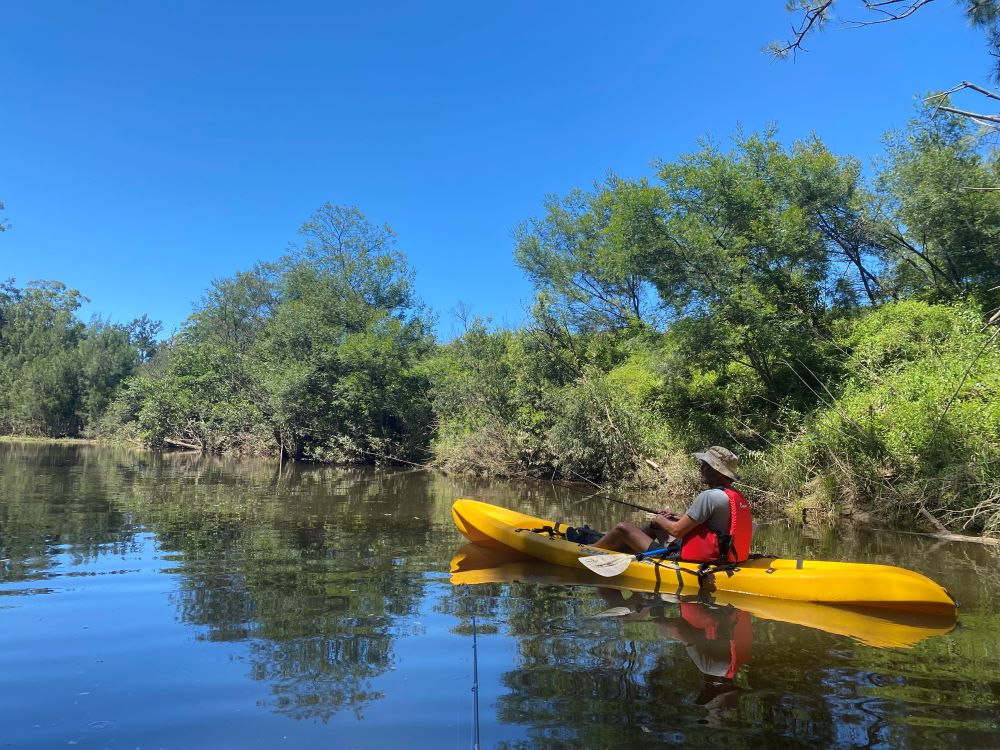Wildlife such as birds, turtles, platypus and other aquatic animals can be accidentally injured by fishing tackle and unattended fishing gear such as crab traps and nets. Other marine animals may also be negatively impacted when disturbed by people or when vehicles approach.
Here are some quick tips on how to reduce injuries and interactions:
- Always attend your lines and check your crab traps and nets regularly. Reducing set time for any fishing gear reduces the chances of harm to accidentally caught aquatic animals.
- Use environmentally friendly crab traps and nets to reduce your bycatch or adapt your current gear.
- Use of crab traps and nets when fishing towards an estuary’s headwaters has a higher risk of interacting with platypus. Please be extra vigilant, check traps and nets regularly and consider moving gear further downstream.
- Remember opera style yabby traps are not permitted in NSW.
- Minimise interactions with birds - avoid bird feeding and nesting areas and keep your distance so as not to disturb them.
- Be aware that interactions causing disturbance with shorebirds and mammals can have negative impacts on their health, well-being and survival.
- Be familiar with ways to minimise litter and lost fishing gear and dispose of it properly.
Respect your catch – whether they are your target species, a pest species or whether they are scavenger that you try to avoid. All fish you interact with should be treated with respect and released or humanely euthanised using best practice. The community is discouraged from directly targeting, disturbing or interacting with rays adjacent to boat ramps and fish cleaning facilities as they are often important to the local community.